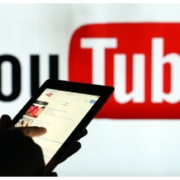It’s no secret that influencer marketing is no longer a luxury, it’s a necessity. Consumers are becoming more and more attached to influencers – even changing their entire purchasing behavior based on what they say.
But just how much power do influencers have on audiences? According to a study in Adweek, 49 percent of consumers said they rely on an influencers recommendation before making a purchase.
Furthermore, businesses tend to generate $6.50 for every $1 they spend on influencer marketing. Influencers have a way of making sense of all the social media content – and consumers follow and trust them.
And while there is a lot of information on influencer marketing out there, not all of it is true. Here are five myths you should stop believing when it comes to influencer marketing.
It’s Expensive
Thanks to human psychology, we want instant results. But with typical marketing, that doesn’t typically happen. Numerous marketers invest in paid media since it’s easy to define and measure results – but you don’t always get the results you want.
Some marketers are weary of investing in influencer marketing since they think the risk is greater than the reward – but that couldn’t be farther from the truth.
Of course big-name celebrities will require a lot of money, so the better thing to do is to work with niche, organic influencers. They’ll put the legwork in for your brand and you’ll keep your costs down.
You Have To Pay Influencers
Many marketers assume that influencers cost money – a lot of money – but that isn’t always the case. In fact, some influencers don’t even require monetary compensation for working with your brand.
Compensation is a widely debated topic among influencer marketing but for most influencers, money isn’t the most important aspect. You can offer them all the money in the world but if it doesn’t resonate with their audience, they won’t accept it. So, targeting those that align with your brand will be the most beneficial.
Influencers don’t always require money as compensation, either. If you have products, for example, you may offer product or inside scoop as compensation.
The More Followers The Better
Just because an influencer has hundreds of thousands of followers, that doesn’t mean those followers are right for your brand.
Joe Chernov, vice president of marketing at InsightSquared said, “Stop ‘big name hunting.’ They’re all ego-trapped out. Focus instead on the next-generation leaders and you’ll have them all to yourself.”
Celebrities, for example, typically have hundreds of thousands to millions of followers. But, not all those followers are engaged nor are they right for your brand.
Instead of looking at numbers look at the influencer and the followers. How engaged is the audience? Do they have a voice in your industry? The more engaged the audience is, the more likely they’ll purchase something the influencer is marketing.
Measuring ROI Is Impossible
Although measuring ROI in general is a challenge many marketers face, it doesn’t have to be difficult when it comes to influencer marketing. The first step is to define your goals. Are you looking to increase brand awareness? Track engagement and social shares? Track click-through rates and conversions? Or get your audience to do something?
When you ask an influencer to share content, provide them with specific tracking links in order to see how many clicks they get. Don’t try to track everything – you’ll overwhelm yourself. Instead, focus on several key metrics and go from there.
You Don’t Need FTC Compliance
When it comes to the Federal Trade Commission, if you don’t follow their regulations precisely, you may end up with thousands of dollars in fines. The FTC, for example, requires influencers to disclose paid sponsorships on the social sites.
Although 88 percent of marketers say they follow the rules, 12 percent still don’t comply. If you’re part of the 12 percent, make sure to get compliant. It doesn’t matter if you are a big-name brand or a small one, if you pay an influencer to promote your product or service, they must disclose the sponsorship on their social site.
If you haven’t explored influencer marketing yet because you didn’t know where to start or you had questions, use this guide to help you. And if you’re looking to really rev up your social media strategy, let Retaliate 1st help you. Learn more about our marketing services here.









